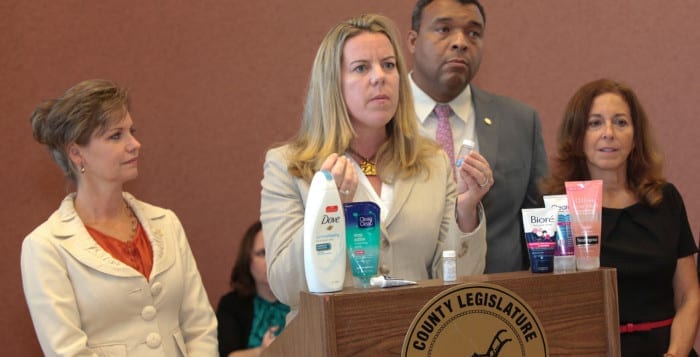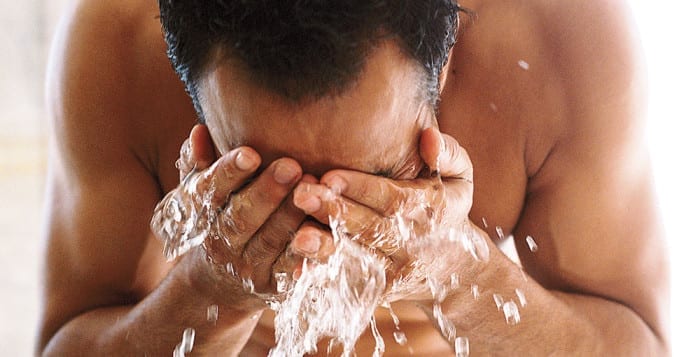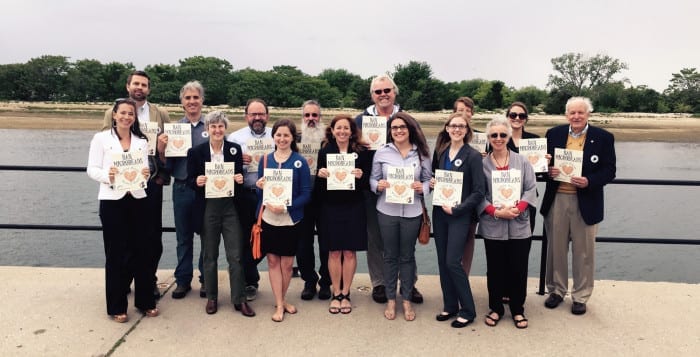A push in the Suffolk County Legislature to ban the sale of personal care products containing microbeads was met with unanimous approval on Tuesday, as state and federal lawmakers are also signing on to the cause.
Suffolk County Legislator Kara Hahn (D-Setauket) celebrated the unanimous vote on Tuesday for legislation crafted with the goal of washing the county free of the tiny, potentially hazardous plastic particles linked to several issues affecting waterways. She stood alongside environmental experts at the county Legislature building in Riverhead, referring to the new ban as a means of keeping Long Island and its surrounding waterways safe.
“There is no place for plastics in our vulnerable bays and waterways,” said Hahn, chair of the Legislature’s Environment Committee and author of the bill. “Microbeads have been found in our precious Long Island Sound, and my legislation will protect our environment, protect our health and protect our fishing and tourism industries.”
Microbeads, which are usually between one and five millimeters in diameter, are typically not filtered out by most wastewater treatment systems. This poses the risk of the tiny beads making their way into surface waters, picking up toxins as they flow from one source to the next. Because of their tiny size, the toxin-laden particles can sometimes be mistaken for food by small fish and other aquatic species.
But it does not end there.
Once the aquatic life consumes the potentially harmful microbeads, they could then make their way into larger living organisms and eventually into the human food supply.
The county legislation said that manufacturers of several personal care products have added the small plastic beads to their facial scrubs, body washes, toothpaste products and select soaps and shampoos over the past 10 years. Now that it has passed, Hahn’s law will go into effect Jan. 1, 2018, and prohibit the sale of any personal care products that contain microbeads in Suffolk County.
Six months before that deadline, Hahn said the Department of Health Services will begin informing retailers selling products that contain microbeads of the new regulations, and enforcement will come through random inspections of at least 10 retailers per quarter in 2018. Anyone who violates the law will be subject to a civil fine of up to $500 for a first offense, a fine of up to $750 for a second offense and a fine of up to $1,000 for all subsequent violations.
Microbead legislation has been gaining traction beyond the Suffolk County level over the past year, with elected officials on both the state and federal levels stepping up to promote the ban of such products. U.S. Sen. Kirsten Gillibrand (D-NY) and state Attorney General Eric Schneiderman visited Long Island over the summer to announce the Microbead-Free Waters Act of 2015, a bipartisan federal bill that would also ban cosmetics containing the plastic pellets.
Gillibrand’s bill had sponsors and co-sponsors from both sides of the aisle, most of them from the Midwest, according to a press release from the senator’s office. It is similar to a New York state-level bill of the same name, which is Schneiderman’s effort to prohibit the sale and distribution of products containing microbeads.







